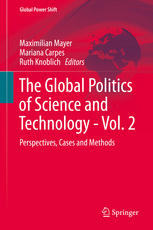

Most ebook files are in PDF format, so you can easily read them using various software such as Foxit Reader or directly on the Google Chrome browser.
Some ebook files are released by publishers in other formats such as .awz, .mobi, .epub, .fb2, etc. You may need to install specific software to read these formats on mobile/PC, such as Calibre.
Please read the tutorial at this link: https://ebookbell.com/faq
We offer FREE conversion to the popular formats you request; however, this may take some time. Therefore, right after payment, please email us, and we will try to provide the service as quickly as possible.
For some exceptional file formats or broken links (if any), please refrain from opening any disputes. Instead, email us first, and we will try to assist within a maximum of 6 hours.
EbookBell Team

4.1
10 reviewsAn increasing number of scholars have begun to see science and technology as relevant issues in International Relations (IR), acknowledging the impact of material elements, technical instruments, and scientific practices on international security, statehood, and global governance. This two-volume collection brings the debate about science and technology to the center of International Relations. It shows how integrating science and technology translates into novel analytical frameworks, conceptual approaches and empirical puzzles, and thereby offers a state-of-the-art review of various methodological and theoretical ways in which sciences and technologies matter for the study of international affairs and world politics. The authors not only offer a set of practical examples of research frameworks for experts and students alike, but also propose a conceptual space for interdisciplinary learning in order to improve our understanding of the global politics of science and technology.
The second volume raises a plethora of issue areas, actors, and cases under the umbrella notion techno-politics. Distinguishing between interactional and co-productive perspectives, it outlines a toolbox of analytical frameworks that transcend technological determinism and social constructivism.